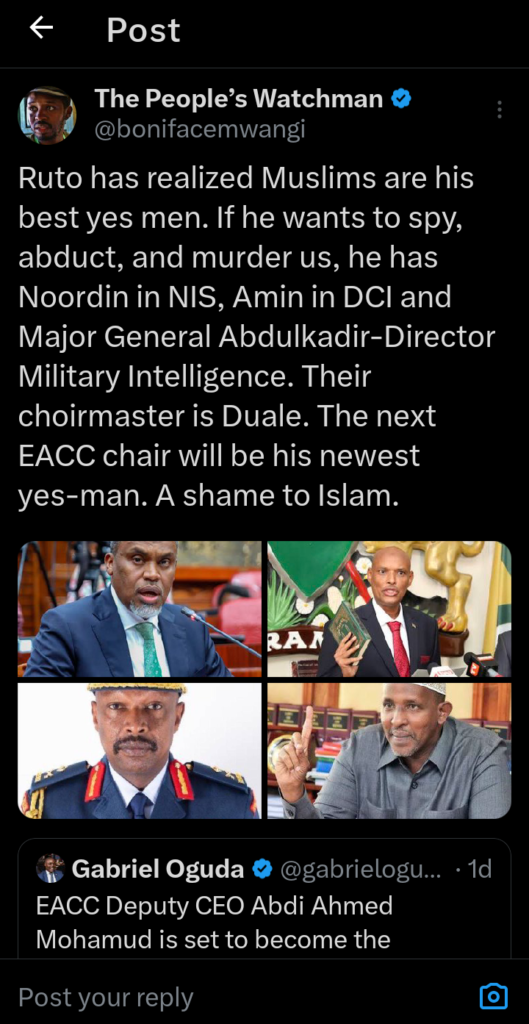President William Ruto’s administration has drawn increasing criticism over its reliance on certain Muslim leaders in key positions, raising questions about the motives behind these appointments.
Key individuals such as Noordin Haji (formerly the DPP and now heading the NIS), Amin Mohamed (DCI), Major General Abdulkadir Mohamed (Director of Military Intelligence), and Aden Duale have been spotlighted.
While these figures represent major roles in the government, skeptics argue that they may serve as enablers of Ruto’s political and security agenda rather than representing independent voices or advancing broader public interests.
Noordin Haji’s appointment to the NIS has sparked controversy, particularly given past allegations of selective prosecution during his tenure as DPP.
Similarly, Amin Mohamed’s leadership of the DCI has faced scrutiny over his handling of sensitive investigations, with critics accusing the agency of prioritizing political objectives over impartial justice.

Major General Abdulkadir, as Director of Military Intelligence, occupies a critical role in Kenya’s security infrastructure.
However, questions linger about whether the agency operates with full independence or primarily serves the administration’s interests. Such roles, when perceived as politically compromised, risk undermining public trust in vital institutions.
Duale, a seasoned politician and former Defence Cabinet Secretary, now heads the Environment docket.
While his shift appears to dilute his direct influence on security matters, his close association with Ruto continues to fuel suspicions about his role as a loyalist rather than an independent policymaker.
Duale has often been seen as a key figure in rallying Muslim leaders to align with the administration’s agenda, sparking accusations of betraying the broader interests of his community.
The anticipated appointment of a new EACC chair with ties to Ruto’s inner circle further underscores these concerns.
Critics argue this trend reflects a broader strategy of consolidating control over institutions to suppress accountability and dissent.
This concentration of power among a few individuals, particularly those expected to serve as checks on government excesses, has elicited backlash.
Many view it as a betrayal of the principles of justice, transparency, and representation, especially within the Muslim community. The appointments, while strategically beneficial for Ruto, raise deeper questions about the independence of institutions and the government’s commitment to democratic principles.





















Add Comment